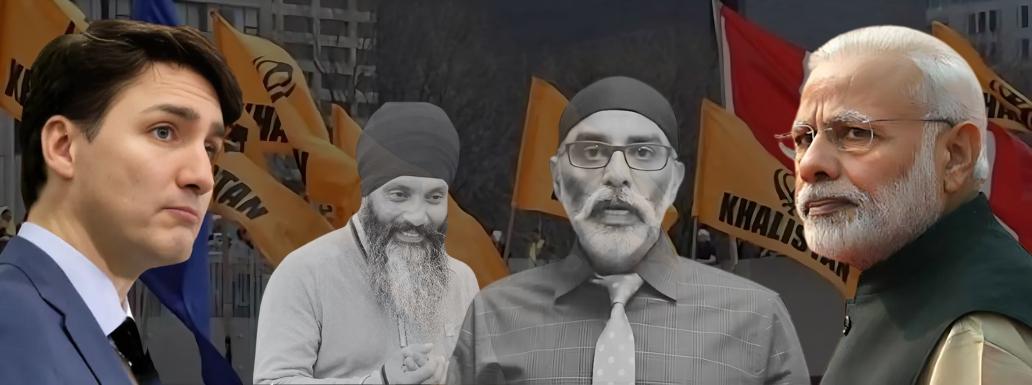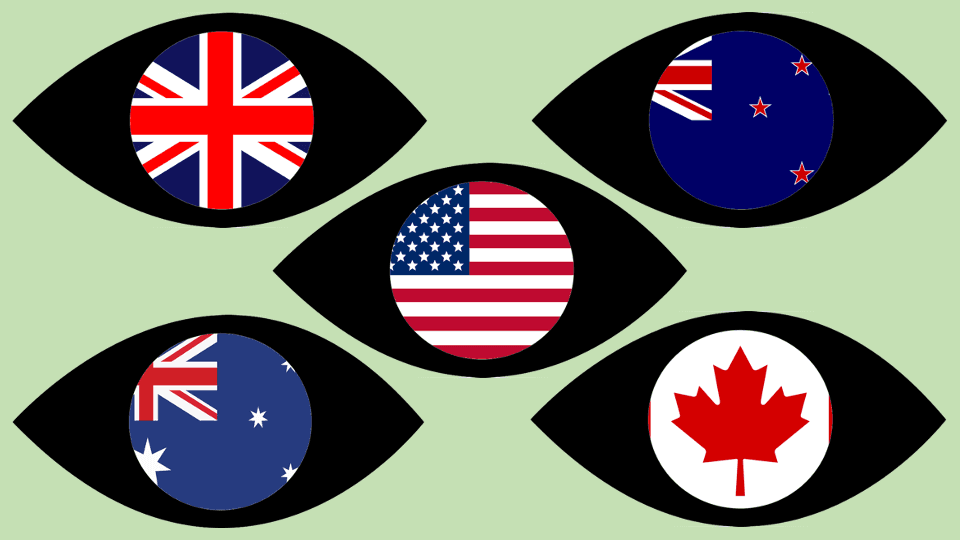Monday 16 February 2026
Canada’s Claims Put India on a Diplomatic Hot Seat: All Five Eyes Watching?
Share

Canadian Prime Minister Justin Trudeau has levelled serious accusations against India accusing the country of orchestrating criminal activity on Canadian soil, targeting individuals from the South-Asian community, particularly Sikhs linked to the Khalistan movement. Trudeau accused India of using its diplomats and organized crime networks to target Canadian citizens. As a result, the diplomatic relations between Canada and India have plunged further into a crisis.
But, India faces a deeper diplomatic challenge as Canada allegedly received the intelligence behind the accusations from its allies in the Five Eyes United States (US), United Kingdom (UK), Australia and New Zealand.
Trudeau described these actions as a monumental mistake by New Delhi, asserting that they have made Canadian citizens feel unsafe in their own country. Trudeaus claims are supported by the Royal Canadian Mounted Police (RCMP), which has charged multiple individuals with involvement in homicides, extortion, and threats allegedly linked to Indian agents.
The Indian Ministry of External Affairs (MEA) has vehemently denied all allegations, accusing the Trudeau government of supporting extremism and separatism against India. The MEA has highlighted past instances where Trudeaus actions have been perceived as interfering in Indian internal politics saying that His (Trudeau) cabinet has included individuals who have openly associated with an extremist and separatist agenda regarding India. His interference in Indian internal politics in December 2020 showed how far he was willing to go in this regard.”
Trudeau has engaged in high-level discussions with the leaders of the Five Eyes member states, including UK Prime Minister Keir Starmer, to address what he describes as a targeted campaign against Canadian citizens by agents linked to the Indian government.
A brief readout released by Downing Street said that the leaders discussed the need to ensure the safety and security of their citizens and the importance of upholding and respecting the rule of law and decided to remain in close contact pending the conclusions of the investigation.
The US gave a similarly muted response to the allegations without refering to India by name by saying that the allegations are extremely serious and they need to be taken seriously.
New Zealand Foreign Minister Winston Peters also didnt refer to India in his statement. The alleged criminal conduct outlined publicly by Canadian law enforcement authorities, if proven, would be very concerning, he said.
As per the Canadian government, the RCMP has presented what it describes as clear and compelling evidence of Indian agents involvement in activities that pose a significant threat to public safety. This includes clandestine information gathering, coercive behavior targeting South Asian Canadians, and involvement in violent acts, including murder. However, Trudeau emphasized on Canadas determination to jointly address the situation with India. However, despite repeated requests for cooperation, India has allegedly chosen not to engage with Canadian authorities.

Canada has sought the support of its Five Eyes intelligence partners and G-7 nations, warning India of potential sanctions. The leader of Canadas New Democratic Party (NDP), Jagmeet Singh, has called for economic sanctions against India and a ban on the Rashtriya Swayamsevak Sangh (RSS) in Canada. Singh, who has long been associated with the Khalistan movement, has demanded decisive action from the Canadian government.
We support todays decision to expel Indias diplomats, and were calling on the Government of Canada to put diplomatic sanctions against India in place, ban the Rashtriya Swayamsevak Sangh Network (RSS) in Canada, and commit to pursuing the most severe consequences for anyone found to have participated in organised criminal activity on Canadian soil.
The Five Eyes alliance, comprising the United States, the United Kingdom, Canada, Australia, and New Zealand, plays a crucial role in this diplomatic standoff. Trudeau has emphasized the close cooperation with Five Eyes partners, particularly the United States, in addressing the alleged extrajudicial activities by India.
The alliances intelligence-sharing capabilities have been instrumental in supporting Canadas claims. Canada reportedly received information from the intelligence alliance which led to the Trudeaus public allegations. The United States Ambassador to Canada, David Cohen, confirmed to Canadian Television network, CTV, that shared intelligence among Five Eyes partners contributed to Trudeaus public allegations. However, he did not confirm the type of intelligence that informed the Canadian Government.
Canada also insists that the evidence was presented to India in a secret meeting in Singapore to Indias National Security Advisor, Ajit Doval. However, India has denied the presence of any evidence that substantiates Canadas claims.
The diplomatic fallout between Canada and India foreshadows ominous implications for its bilateral relationship with Canada which seemed to have soured irreparably since Hardeep Singh Nijjar’s assassination in Vancouver. India alleges that Canada for fast-tracking citizenship for Khalistani supporters which incites a growing separatist sentiment in India. India has also accused the US of harbouring and protecting Gurpatwant Singh Pannun, another NIA-designated terrorist and leader of the banned Sikh extremist organization, Sikhs for Justice (SFJ).
However, India was put in diplomatic crosshairs for enabling extrajudicial killings as the US had arrested Vikram Yadav, a former officer of Indias Research and Analysis Wing (RAW), for orchestrating the plot to assassinate Pannun.
Identified as CC1 in the U.S. Department of Justice (DoJ) indictment, Yadav had allegedly recruited Nikhil Gupta, an Indian national, to hire a hitman. The plan was uncovered through a sting operation by U.S. law enforcement. Gupta contacted a criminal associate to find a hitman, who turned out to be a DEA informant.
India has criticized the western nations for inciting violence and separatism under the guise of freedom of speech by allowing public demonstrations advocating for a Sikh homeland (Khalistan) by taking up arms and glorifying the assassination of former Indian Prime Minister, Indira Gandhi.
While the growing threat of separatism hinting at a possible regional conflict is a viable cause for concern for the Indian government, Indias response towards Trudeau and refusing co-operation with the Canadian government in the investigation has raised alarm in diplomatic circles.
Newsletter
Stay up to date with all the latest News that affects you in politics, finance and more.